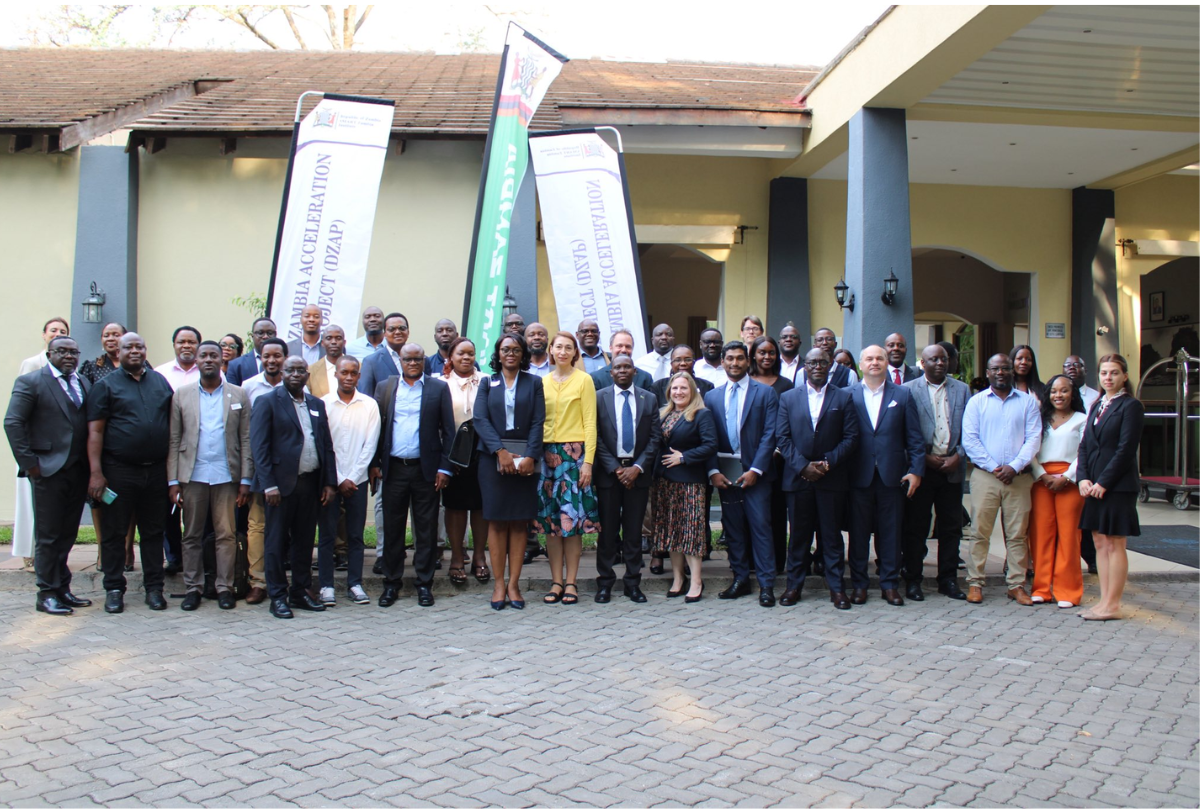Trade unions call for ambitious tax justice reforms at UN negotiations – International Trade Union Confederation

Report on Labour Union Demands for a UN Framework Convention on International Tax Cooperation
Introduction
A coalition of global labour unions, including the International Trade Union Confederation (ITUC), Public Services International (PSI), and the Network of Unions in Trade and Industry (NUTJ), has presented a formal submission to the Intergovernmental Negotiating Committee (INC) tasked with developing a United Nations Framework Convention on International Tax Cooperation. The submission outlines a comprehensive framework for a global tax system designed to be fair, transparent, and democratic, with a significant focus on advancing the Sustainable Development Goals (SDGs).
Core Demands and Alignment with Sustainable Development Goals
The unions have articulated a series of specific demands for the Convention and its initial protocols, directly linking international tax policy to key development outcomes.
- Ensure Progressive and Equitable Taxation: The proposal calls for a system where multinational enterprises (MNEs) contribute their fair share, preventing the tax burden from shifting regressively onto workers and consumers. This principle directly supports SDG 10 (Reduced Inequalities) by addressing wealth concentration and SDG 17 (Partnerships for the Goals), specifically Target 17.1, which aims to strengthen domestic resource mobilization through improved tax collection.
- Address Systemic Enablers of Tax Abuse: The framework seeks to eliminate mechanisms that facilitate corporate tax avoidance, such as profit shifting. It advocates for the fair allocation of taxing rights based on genuine economic activity. This measure is crucial for achieving SDG 16 (Peace, Justice and Strong Institutions), particularly Target 16.4, which aims to significantly reduce illicit financial flows.
- Establish Binding Transparency Rules: A key demand is the implementation of mandatory transparency regulations that grant workers and civil society access to essential tax information. This aligns with SDG 16, promoting the development of effective, accountable, and transparent institutions (Target 16.6).
- Mandate Socio-Economic Impact Assessments: The submission insists that all tax rules undergo rigorous impact assessments, with a special focus on their effects on gender equality, decent work, and overall sustainable development. This directly integrates SDG 5 (Gender Equality) and SDG 8 (Decent Work and Economic Growth) into the fabric of global tax policy, ensuring that economic rules advance social progress.
Institutional Framework and Governance
To support the proposed reforms, the labour movement advocates for a robust governance structure that ensures fairness and accountability.
- Fair Dispute Resolution: The unions call for the establishment of fair and transparent dispute prevention and resolution mechanisms between sovereign states, while explicitly rejecting investor-state dispute settlement (ISDS) systems. This promotes SDG 16 by upholding the rule of law at the international level.
- Creation of a UN Oversight Body: A proposal was made to create a permanent, well-resourced UN body responsible for monitoring the implementation of the Convention and enforcing accountability among member states. Such an institution would bolster SDG 16 (Strong Institutions) and SDG 17 (Global Partnerships).
- Inclusive Participation: The unions demand the full and effective participation of trade unions and civil society organizations throughout the negotiation and implementation process, reflecting the multi-stakeholder partnership approach central to SDG 17.
Conclusion
The global labour movement positions these negotiations as a historic opportunity to reform an international tax system that currently disadvantages working people. The proposed Convention is framed as an essential instrument for financing critical public services, tackling inequality, and rebuilding public trust in democratic institutions. By placing people and the planet before profit, the unions argue that a reformed tax system is fundamental to achieving the comprehensive agenda of the Sustainable Development Goals.
SDGs Addressed in the Article
SDG 10: Reduced Inequalities
- The article’s central theme is creating a “fair, transparent and democratic global tax system” to combat a system “rigged against working people.” This directly addresses the goal of reducing inequality. The call for “progressive and equitable taxation” and ensuring multinational enterprises (MNEs) pay their “fair share” aims to redistribute resources and reduce income disparities. The text explicitly states that a key goal is “tackling inequality.”
SDG 17: Partnerships for the Goals
- The entire article focuses on establishing a global partnership for sustainable development through a “UN Framework Convention on International Tax Cooperation.” This initiative is a prime example of strengthening the means of implementation for the SDGs. The call for a convention is about creating a global framework to “strengthen domestic resource mobilization,” which is a key aspect of SDG 17.
SDG 16: Peace, Justice and Strong Institutions
- The demands for “binding transparency rules,” a “standing, well-resourced UN body to monitor implementation and enforce accountability,” and “fair and transparent dispute prevention and resolution between sovereign states” all contribute to building effective, accountable, and inclusive institutions at the global level. The call to “rebuilding trust in democracy” and for the “full and effective participation of trade unions and civil society” also aligns with this goal.
SDG 8: Decent Work and Economic Growth
- The article explicitly calls for “social and economic impact assessments of tax rules, especially on… decent work.” It also aims to prevent “regressive tax shifts onto workers,” ensuring that economic systems do not disproportionately burden the labor force. This supports the creation of an economic environment conducive to decent work.
SDG 5: Gender Equality
- The submission detailed in the article specifically demands that social and economic impact assessments of new tax rules consider their effect on “gender equality.” This acknowledges that tax policies can have different impacts on men and women and seeks to ensure that new global tax rules promote, rather than hinder, gender equality.
SDG 1: No Poverty
- By advocating for a tax system that effectively collects revenue from MNEs, the article addresses a primary source of financing for public services. As stated by the ITUC General Secretary, “Fair taxation is fundamental to… financing public services,” which are essential for poverty reduction programs, social safety nets, and healthcare.
Specific SDG Targets Identified
SDG 10: Reduced Inequalities
- Target 10.4: Adopt policies, especially fiscal, wage and social protection policies, and progressively achieve greater equality.
- The article’s core demand for “progressive and equitable taxation” and avoiding “regressive tax shifts onto workers and consumers” is a direct call for the kind of fiscal policy described in this target.
SDG 17: Partnerships for the Goals
- Target 17.1: Strengthen domestic resource mobilization, including through international support to developing countries, to improve domestic capacity for tax and other revenue collection.
- The proposed UN Convention aims to stop corporate tax abuse like “profit shifting,” which would directly enhance countries’ ability to collect tax revenue from MNEs, thus strengthening domestic resource mobilization.
- Target 17.14: Enhance policy coherence for sustainable development.
- The call for a single, binding UN Convention is an effort to create a coherent global tax system that supports sustainable development, as opposed to the current fragmented system that allows for tax avoidance.
- Target 17.17: Encourage and promote effective public, public-private and civil society partnerships.
- The demand for “full and effective participation of trade unions and civil society throughout the negotiation process” directly reflects the principle of building multi-stakeholder partnerships.
SDG 16: Peace, Justice and Strong Institutions
- Target 16.6: Develop effective, accountable and transparent institutions at all levels.
- The call to “establish binding transparency rules” and create a “standing, well-resourced UN body to monitor implementation and enforce accountability” is a clear strategy for achieving this target on a global scale.
- Target 16.7: Ensure responsive, inclusive, participatory and representative decision-making at all levels.
- This is addressed by the demand that the negotiation process includes the “full and effective participation of trade unions and civil society” to ensure their voices and realities are reflected.
SDG 5: Gender Equality
- Target 5.c: Adopt and strengthen sound policies and enforceable legislation for the promotion of gender equality and the empowerment of all women and girls at all levels.
- The demand to “mandate social and economic impact assessments of tax rules, especially on gender equality” is a mechanism to ensure that tax policies are sound and promote gender equality.
Indicators for Measuring Progress
For Target 17.1 (Strengthen domestic resource mobilization)
- Implied Indicator: Amount of tax revenue collected from multinational enterprises. The article’s focus on MNEs contributing their “fair share” and ending “profit shifting” implies that a key measure of success would be an increase in corporate tax revenues for governments.
- Implied Indicator: Reduction in illicit financial flows. The call to address “systemic enablers of corporate tax abuse and unfair practices such as profit shifting” directly relates to curbing illicit financial flows, a key component of measuring progress in resource mobilization.
For Target 16.6 (Develop effective, accountable and transparent institutions)
- Implied Indicator: Establishment of a UN Framework Convention on International Tax Cooperation. The existence of the convention itself would be a primary indicator of progress.
- Implied Indicator: Public access to corporate tax information. The demand for “binding transparency rules, ensuring workers and civil society can access key tax information” suggests that the level of public access to this data is a measurable outcome.
For Target 5.c (Adopt and strengthen sound policies… for gender equality)
- Implied Indicator: Integration of gender impact assessments in tax policymaking. The specific call to “mandate social and economic impact assessments of tax rules, especially on gender equality” provides a clear, measurable action. Progress could be tracked by the number of countries or international bodies that adopt this practice.
For Target 16.7 (Ensure responsive, inclusive, participatory… decision-making)
- Implied Indicator: Level of civil society and trade union participation in tax negotiations. The demand for “full and effective participation” can be measured by tracking the formal inclusion, speaking rights, and influence of these groups in the negotiation process for the UN Convention.
Summary of SDGs, Targets, and Indicators
| SDGs | Targets | Indicators (Mentioned or Implied in the Article) |
|---|---|---|
| SDG 10: Reduced Inequalities | 10.4: Adopt policies, especially fiscal… and progressively achieve greater equality. | Implementation of progressive tax systems; reduction of regressive taxes on workers and consumers. |
| SDG 17: Partnerships for the Goals | 17.1: Strengthen domestic resource mobilization… to improve domestic capacity for tax… collection. | Increased tax revenue from MNEs; reduction in corporate profit shifting. |
| 17.17: Encourage and promote effective… civil society partnerships. | Formal participation of trade unions and civil society in the UN tax convention negotiations. | |
| SDG 16: Peace, Justice and Strong Institutions | 16.6: Develop effective, accountable and transparent institutions at all levels. | Establishment of a binding UN Tax Convention; creation of a UN body for monitoring; public access to key corporate tax information. |
| 16.7: Ensure responsive, inclusive, participatory and representative decision-making. | Level of influence and inclusion of non-state actors (unions, civil society) in the decision-making process. | |
| SDG 8: Decent Work and Economic Growth | (Related to promoting decent work) | Mandatory social and economic impact assessments of tax rules on decent work. |
| SDG 5: Gender Equality | 5.c: Adopt and strengthen sound policies… for the promotion of gender equality. | Mandatory social and economic impact assessments of tax rules on gender equality. |
| SDG 1: No Poverty | (Related to financing for poverty reduction) | Increased national revenue available for financing public services. |
Source: ituc-csi.org

What is Your Reaction?
 Like
0
Like
0
 Dislike
0
Dislike
0
 Love
0
Love
0
 Funny
0
Funny
0
 Angry
0
Angry
0
 Sad
0
Sad
0
 Wow
0
Wow
0
























;Resize=805#)






















































